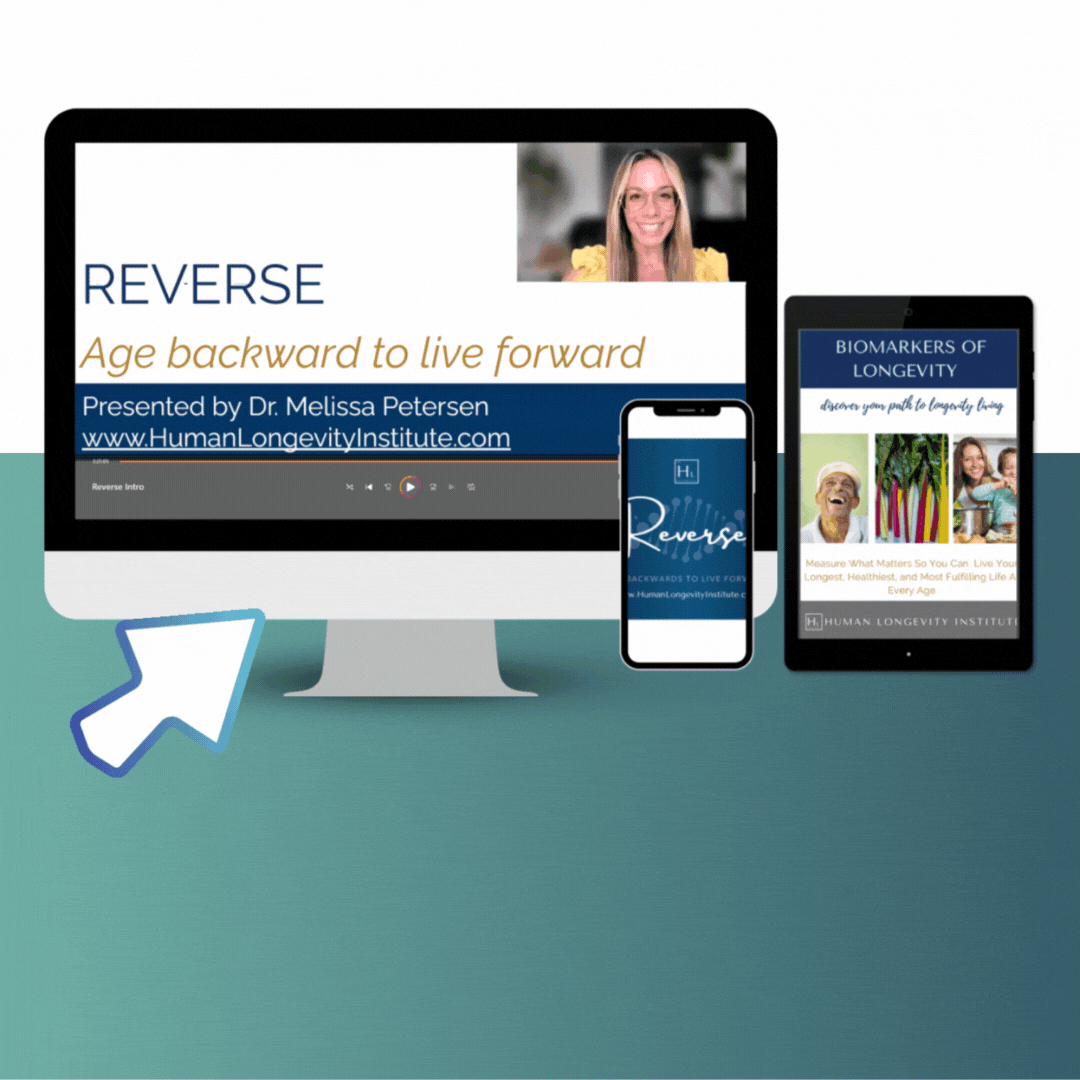In today’s episode we will explore the impact of the mind, mindsets, perceptions and beliefs on how long and how well we live. Get ready to explore fascinating research that looks at the positives and negative implications so together we can gain new insights and leave with practical solutions to use the most powerful tool for living better, longer…the mind.
Special Thanks to Our Show Sponsor: BrainTap. Backed by neuroscience and research, BrainTap uses neuro-algorithms and audio training and light technology to optimize brainwave function, improve focus, mood, memory, sleep, performance and overall wellbeing.
To get a FREE 15 day trial, click here and start Braintapping today.
Welcome to the Human Longevity Podcast. I’m your host Dr. Melissa Peterson and together we’re about to explore the science and solutions that can help you live better longer.
Have you ever heard the adage whether you think you can or you can’t you’re right. The mind is a powerful tool that can be weilded in very specific ways both biologically and psychologically to inform and impact the expression of ones health, wellbeing and life.
In today’s episode we will explore the impact of mind, mindsets, perceptions and beliefs looking at if and how they influence how long and how well we can live.
In the field of longevity, a gap has been found between how long we live and how well we live. According to the data, approximately the last decade for many people is spent in decline, breakdown and disease. Yet what if it didn’t have to be this way?
Longevity is closing this gap by finding more and more validated ways to live better longer.
One surprising place before diet, exercise, medications or sci fi sounding sensor implants is in the mind.
Ellen Langer, a renowned social psychologist at Harvard, in 1978 conducted the “ Counterclockwise” study.(1) She took 8 elderly men to live in a residential retreat that recreated the social-physical environment of 1959. The men in the experimental group were told not merely to reminisce about this earlier era, but to inhabit it — to “make a psychological attempt to be the person they were 22 years ago, From the time they walked through the doors, they were treated as if they were younger. The men were told that they would have to take their belongings upstairs themselves, even if they had to do it one shirt at a time.
After one week in this 20-year journey back in time, all eight participants showed marked improvements in their hearing, memory, dexterity, appetite, and general well-being. They even looked younger to outside observers who saw photos of them before and after the experiment.
This was the first stand out moment of many in the research to come highlighting that what we believe and how we perceive ourselves and aging has been shown to have a direct correlation to how long we live and how well.
Today we are going to explore several more studies, consider our own biases and apply some simple strategies that if we choose, can allow us to tap into our own longevity mind, slow down the rate and impact of aging to add years to our lives and life to our years.
Have you ever heard of the term priming? From a psychological standpoint, priming is a technique in which the introduction of one stimulus influences how people respond to a subsequent stimulus.
Priming works by unconsciously activating an association or representation in memory just before another stimulus or task is introduced.
In one study, researchers implicitly primed participants with words commonly associated with stereotypes about elderly people.(2) Upon leaving the testing booth, people who had been primed with words related to older adults were more likely to walk more slowly than participants who had not been primed.
Aging and Mental Health found that priming participants with negative aging stereotypes resulted in more negative effects on behaviors and self-rated evaluations. Priming participants with these negative aging stereotypes led to increased feelings of loneliness and an increased frequency in help-seeking. (3)
A group of participants in the Baltimore study underwent regular brain scans, and some donated their brains for autopsies. Those who held more negative age beliefs at younger ages exhibited a sharper decline in the volume of the hippocampus, the brain region associated with memory. They also exhibited, after their deaths, more of the brain plaques and tangles that are Alzheimer’s biomarkers. (7)
In a study of New Haven residents over 70, those with positive age beliefs were also more likely to recover fully from severe disability than those with negative beliefs. (6)
And if I were to ask you right now to think about an older person, what comes to mind? Here in western culture, we have predominantly lost our respect and reverence for our older, wiser members of society.
Western cultures tend to be youth-centric, emphasizing attributes like individualism and independence. This relates back to the Protestant work ethic, which ties an individual’s value to his or her ability to work — something that diminishes in old age. (5)
In Eastern and Mediterranean cultures, elders are respected and revered. Mediterranean and Latin cultures place similar priority on the family. In both cultures, it’s commonplace for multiple generations to live under one roof.
Eastern cultures like China’s adhere to the Confucian tradition of “filial piety,” which prioritizes the family unit and values elders with the utmost respect. Culturally we are raised to carry certain values and beliefs about what it means to get older.
One of the most significant factors as found in a 2 decade long research project conducted by Dr. Levy. The research found that older individuals with more positive self-perceptions of aging, lived 7.5 years longer than those with less positive self-perceptions of aging. This advantage remained after age, gender, socioeconomic status, loneliness, and functional health were included as covariates. (8)
Here is the fantastic news- just by listening today, you now have a new awareness meaning the unconscious has just been made conscious and regardless of what you may have thought or believed, you can upgrade your own longevity perception and potential beginning today.
To find out how, keep listening, we’ll be right back after a word from our sponsors…
If you want to upgrade your longevity mindset, improve focus, clarity, mood, memory and perform at your peak potential—anytime, anywhere, then you will want to check out one of my personal favorite apps and pieces of tech, BrainTap. Backed by neuroscience and research, BrainTap is proven to help people who experience high stress, difficulty sleeping, low energy, and other lifestyle challenges.
Click the link below to get a FREE 15 day trial of the app or go to humanlongevityinstitute.com/braintap to sign up and get your 15 day free trial
Using exclusive neuro-algorithms in our audio sessions to gently and naturally guide your brain through a broad range of brainwave patterns,that create a symphony of brainwave activity, a feeling of calm focus that’s just right for learning and productivity.
Click the link below to get a FREE 15 day trial of the app or go to humanlongevityinstitute.com/braintap to sign up and get your 15 day free trial
So how do we change our perception of age and increase our longevity living potential?
- Get curious– begin to notice images, words, thoughts, phrases, advertisements or any encounter you have around age.
- Notice and consider your perception- write out or speak out what you think or believe about what you encounter.
- Challenge to transform– challenge any negative or limiting thoughts and beliefs. Use positive priming to reframe your current level of thinking.
- Ex instead of I’m getting older- I’m getting wiser
- Ex instead of the older I get the worse I feel- the older I get the more life I feel
- Ex instead of its just the way it is- anything is possible
As you now understand that the psychology of the mind informs and influence the physiology of the body, you don’t need anything except a new understanding to change your own potential.
What is your longevity vision? How do you want to be more fully experiencing each moment of your journey through life?
Just know that regardless if you used to think of something one way, what used to be true, no longer has to stay true today. Just like we upgrade the operating systems of our phones, apps and latest tech- remember, YOU- the human body is THE most advanced tech on the planet. Consider this your invitation to run a system upgrade. Share new insights, new information, new inputs that can be implemented and integrated to create life-enhancing outcomes that will allow you to more fully flourish and thrive at any age and any stage of life.
References:
- Langer E. Counterclockwise: Mindful Health and the Power of Possibility. Ballantine Books; 2009.
- Bargh JA, Chen M, Burrows L. Automaticity of social behavior: direct effects of trait construct and stereotype activation on action. J Person Soc Psychol. 1996;71(2):230-244. doi:10.1037/0022-3514.71.2.230
- Coudin G, Alexopoulos T. Help me! I’m old!’ How negative aging stereotypes create dependency among older adults. Aging Ment Health. 2010;14(5):516-523. doi:10.1080/13607861003713182
- Hagood EW, Gruenewald TL. Positive versus negative priming of older adults’ generative value: do negative messages impair memory?. Aging Ment Health. 2018;22(2):257-260. doi:10.1080/13607863.2016.1239063
- Bergeron, Caroline & Lagacé, Martine. (2021). On the Meaning of Aging and Ageism: Why Culture Matters. University of Toronto Quarterly. 90. 140-154. 10.3138/utq.90.2.06.
- Levy BR, Pilver C, Chung PH, Slade MD. Subliminal strengthening: improving older individuals’ physical function over time with an implicit-age-stereotype intervention. Psychol Sci. 2014 Dec;25(12):2127-35. doi: 10.1177/0956797614551970. Epub 2014 Oct 17. PMID: 25326508; PMCID: PMC4372155.
- Levy BR, Ferrucci L, Zonderman AB, Slade MD, Troncoso J, Resnick SM. A culture-brain link: Negative age stereotypes predict Alzheimer’s disease biomarkers. Psychol Aging. 2016 Feb;31(1):82-8. doi: 10.1037/pag0000062. Epub 2015 Dec 7. Erratum in: Psychol Aging. 2016 Feb;31(1):88. PMID: 26641877; PMCID: PMC4853823.
- Levy BR, Breaking the Aging Code . Harpers Collins 2022






